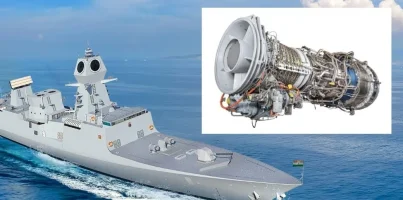- Views: 816
- Replies: 15

India's reliance on foreign suppliers, primarily Ukraine, for marine gas turbine engines used in warships has been a longstanding practice within the Indian Navy.
However, the volatility of current geopolitical climates underscores the inherent risk of this dependence on a sole foreign source. To achieve greater strategic independence and self-sufficiency, this article proposes that India must accelerate the development of its own domestic marine engine capabilities.
The Ukraine conflict serves as a stark reminder of the dangers of relying on one source for critical defense technologies. Supply chain disruptions, potential sanctions, and restricted control over updates and repairs are all threats that could arise.
An indigenous marine engine program would shield India from such vulnerabilities, ensuring uninterrupted access to these essential warship components.
By pursuing domestic warship engine production, India would considerably bolster its strategic autonomy. Having the power to design, manufacture, and service its own engines would give India the flexibility to adapt quickly to changing maritime challenges without the limitations that come with external suppliers. This self-determination would further solidify India's role as a leading regional power.
Naturally, developing a national marine engine industry is a complex and ambitious goal. India would need substantial investments in research and development, coupled with the creation of a strong manufacturing base and the recruitment of top-tier engineering talent. Strategic partnerships between the public sector, private industry, and academic institutions would be essential for a successful outcome.





